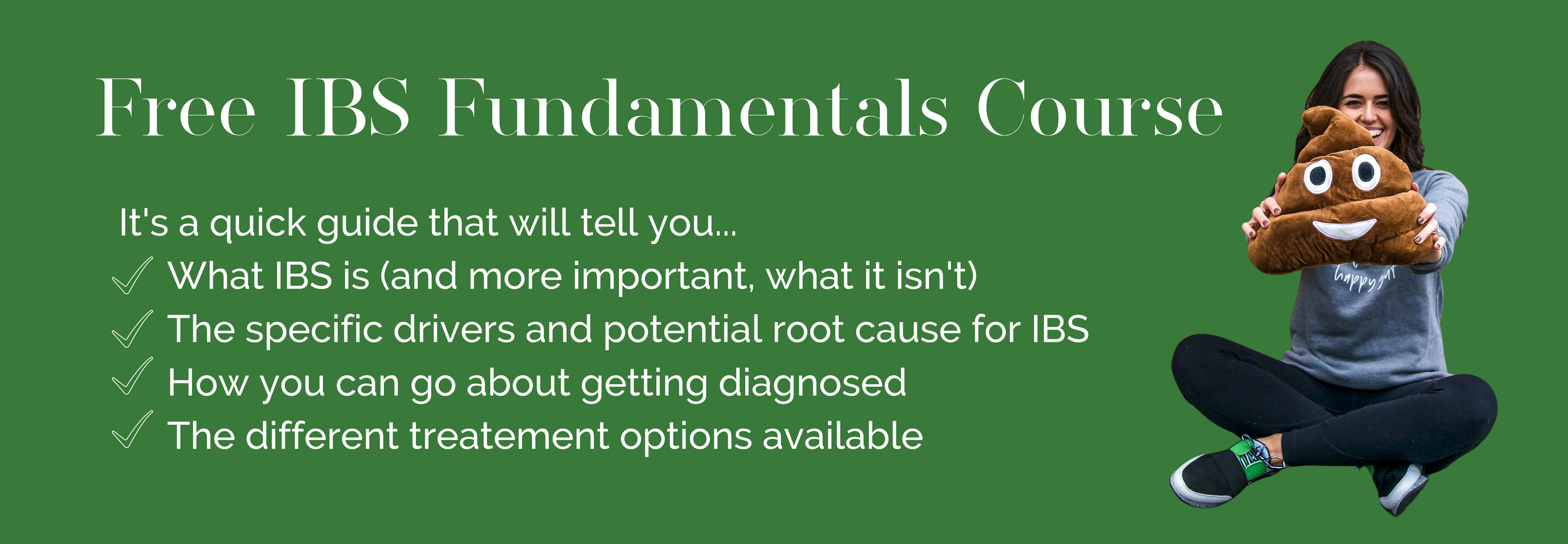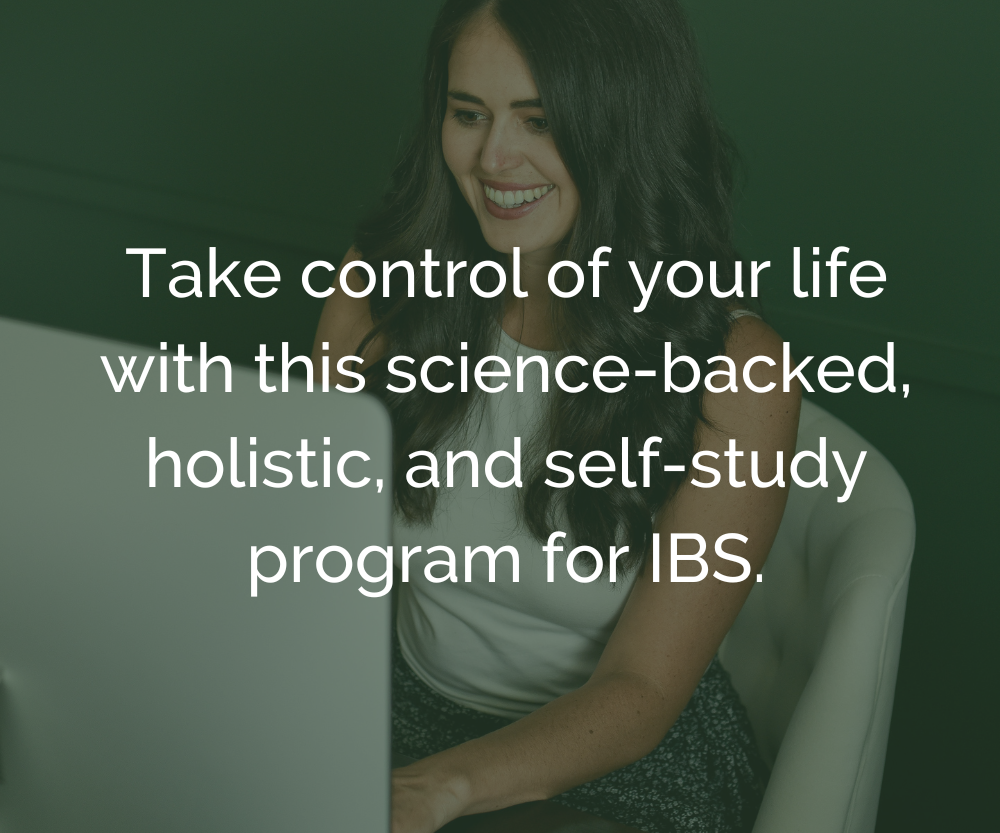What triggers IBS symptoms?
Irritable bowel syndrome (IBS) is a functional disorder of the gut-brain interaction, and it is through to impact around 10-15% of the population. There is currently no diagnostic test for it or even single treatment for it.
With IBS, the function of the gut is altered and there are some clear drivers at place with it that can explain what symptoms are present and how to address those. We will get to that in a moment…
IBS is diagnosed based on symptoms and the duration of those symptoms, according to Rome IV criteria. This means that a diagnosis of IBS must involve changes in motility, or movement of stool through the gastrointestinal (GI) tract, and pain. Some of the common symptoms that we will see with IBS include gas, bloating, pain, and then constipation and/or diarrhea.
What’s your poop personality? Find out here!
Cause of IBS vs cause of symptoms
Potential causes of IBS include chronic antibiotic use, foodborne illness, chronic stress, and other factors that change the microbiome (cancer treatment, surgery, etc).
Most people develop IBS symptoms long before a diagnosis is made, so it can be tough to pinpoint the exact cause. Many times, IBS symptoms will show up in times of stress, like during college, in pregnancy, or with the start of a new job or transition. This doesn’t mean the stress caused IBS, but likely means this was a trigger for symptoms to turn on after IBS was already present. This is all still not well known.
Learn more about the cause of IBS here.
The causes of IBS can impact symptoms, but the actual triggers of symptoms will differ from the cause of the condition. This is a piece of the IBS puzzle that can be confusing for those living with it. Think of the cause of the condition as the WHY behind the symptoms versus the trigger being the HOW to the symptom you are feeling.
When we focus on managing IBS and treatment for it, we want to consider both the potential cause(s) of the condition and the trigger(s) for the symptoms.
What are symptom triggers?
Symptom triggers can vary based on the symptoms themselves and your own body. So there may be common triggers that aren’t a problem for you, and there may be unique triggers that aren’t common for others. This is where we track symptom patterns in relation to potential triggers to figure out what may be going on.
Common symptom triggers include:
Poor sleep
Hormone shifts during the menstrual cycle
Specific foods (FODMAPs, allergens, fiber, fats, etc.)
Stress (all forms of it)
High intensity exercise
Lack of movement
Hydration status
Alcohol
Tobacco and drugs
Caffeine and coffee
Medications and supplements
Skipping meals and under-nutrition
Binge-eating behaviors
Once you identify potential symptoms triggers, the next step is to either modify the trigger itself, which could look like removing it or changing it, or to implement supportive strategies around the trigger. This option is most true for stress when the stressors can’t be taken away from your life fully.
If you’re looking for help identifying what your triggers may be, while also addressing the causes of your condition and overall gut health, our team of dietitians at Gutivate may be a good fit. Schedule a consult call so we can talk and see if our program is right for you!
Are you frustrated with your IBS symptoms? Do you desire to be confident in your food choices? Do you want to have a healthier relationship with your body and diet? Are you ready to take control of your IBS?



